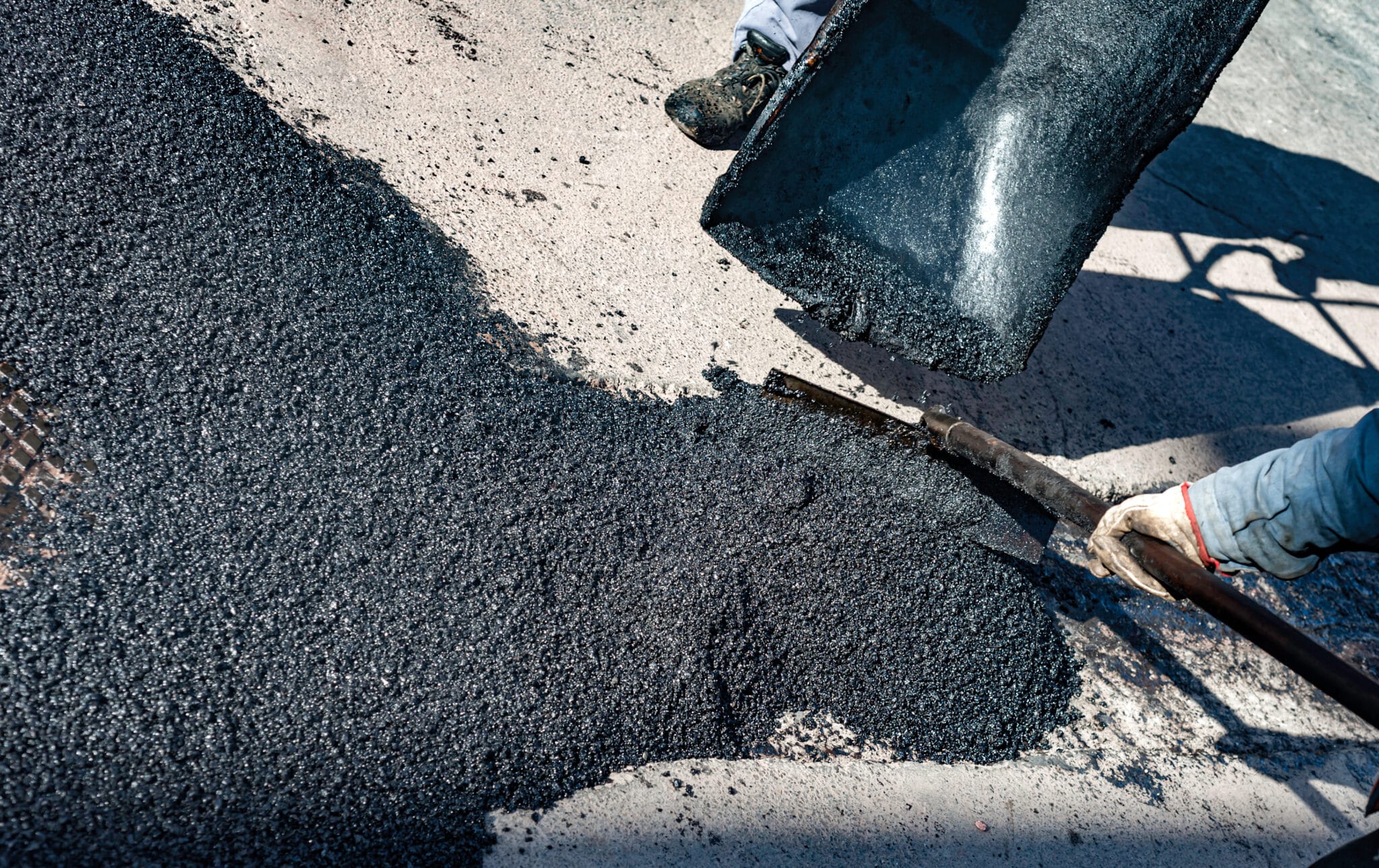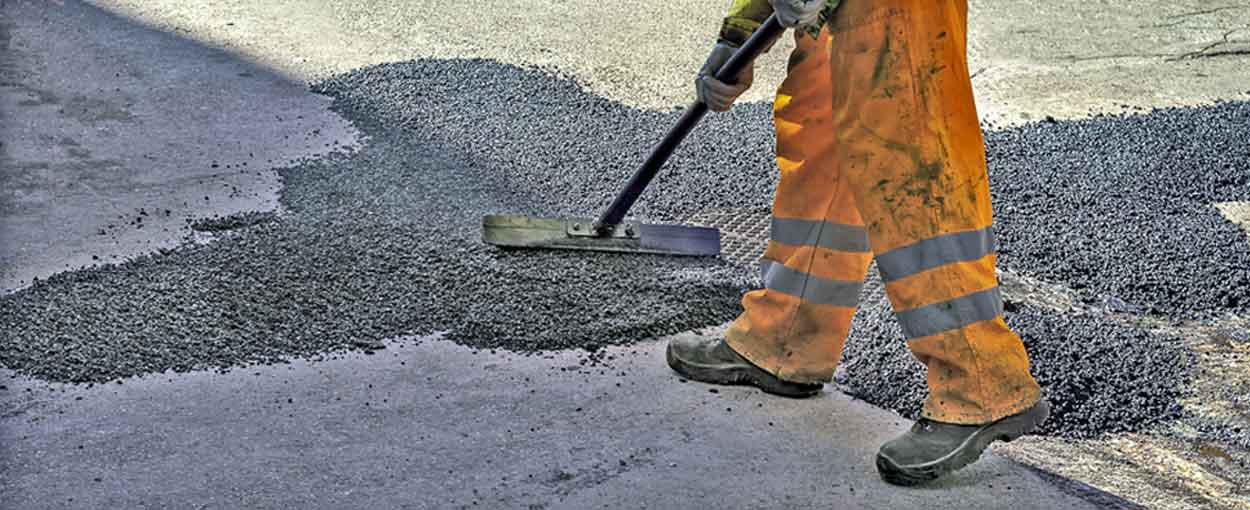Cold Mix Asphalt: Changing the Means We Construct Roads
As the facilities industry continues to advance, the application of cool mix asphalt provides a promising shift in road building approaches. The innovative residential properties of chilly mix asphalt are difficult standard road-building practices, paving the way for boosted effectiveness and toughness.
Advantages of Cold Mix Asphalt
What benefits does cold mix asphalt deal over conventional warm mix asphalt in roadway construction tasks? Cold mix asphalt gives several advantages that make it a favored choice in certain scenarios. One essential benefit is its ability to be used in all weather, unlike hot mix asphalt which needs particular temperature problems for laying and mixing. This adaptability permits year-round building, reducing task timelines and costs connected with weather condition delays.
Moreover, cool mix asphalt can be stocked for future usage, supplying convenience and cost savings for maintenance tasks. Its convenience of application, needing no customized devices or heating, makes it optimal for fast repair services and patching. Furthermore, cold mix asphalt is much more eco-friendly as it requires less power for manufacturing and gives off reduced degrees of greenhouse gases compared to hot mix asphalt. These advantages combined make chilly mix asphalt a functional and efficient option for numerous roadway building and construction projects.

Environmental Advantages
One of the crucial environmental advantages of cool mix asphalt is its lower carbon footprint contrasted to warm mix asphalt. Furthermore, cold mix asphalt is often made making use of recycled materials such as recovered asphalt sidewalk (RAP) and recycled asphalt shingles (RAS), more minimizing the need for new raw materials and diverting waste from landfills.
Furthermore, using cold mix asphalt can bring about decreased energy intake during building because of its capacity to be used utilizing typical devices without the requirement for added heating procedures. This not only lowers gas consumption but additionally lessens air contamination and improves air top quality in the bordering areas. By picking chilly mix asphalt for road jobs, building and construction firms can make a positive effect on the atmosphere while still making certain top quality and long lasting roadway surfaces.
Flexibility in Climate Conditions
In road building and construction jobs, the flexibility of cold mix asphalt in various climate condition boosts its usefulness and efficiency. Unlike warm mix asphalt, which calls for heats throughout blending and installment, cool mix asphalt can be made use of in a large range of weather condition problems. Asphalt Repair. This adaptability makes it a useful option for road building in areas with severe temperature levels or unpredictable weather condition patterns
Cold mix asphalt remains practical even in cold climate, allowing building and construction projects to proceed during winter months when warm mix asphalt may not be a practical choice. Its capacity to set and heal without the demand for heats makes sure that roadway maintenance and repair work can be carried out year-round, lessening interruptions to web traffic circulation and decreasing total task timelines.
Furthermore, cold mix asphalt's resilience to moisture makes it appropriate for locations prone to regular rainfall or high humidity. Its adaptability and resilience allow it to hold up against growth and tightening created by temperature level variations, contributing to longer-lasting roadways that call for less repair services with time. Overall, the versatility of chilly mix asphalt in various weather makes it a trustworthy choice for sustainable and reliable roadway building and construction jobs.

Cost-Effectiveness and Sustainability
Taking into consideration the environmental and financial effects of road building materials, how does the cost-effectiveness and sustainability of cold mix asphalt compare to traditional choices? Cold mix asphalt supplies a compelling cost-efficient and sustainable service for road building. In terms of cost-effectiveness, chilly mix asphalt commonly requires reduced manufacturing temperatures, decreasing energy usage and production prices contrasted to hot mix asphalt. The ability to be accumulated for extended periods without hardening also reduces waste and enables much easier repair and maintenance, resulting in total cost savings. In addition, making use of chilly mix asphalt can lead to lowered transport costs as a result of its longer service life and the possibility of being generated on-site.
The ability to recycle existing materials into cold mix asphalt adds to a circular economic situation approach, minimizing the demand for virgin materials and cold mix asphalt decreasing total environmental effect. Generally, the cost-effectiveness and sustainability of cool mix asphalt make it an encouraging choice to typical roadway building materials.
Impact on Roadway Toughness
Cold mix asphalt, with its one-of-a-kind features, has a remarkable effect on roadway toughness. One key element is the ability of cold mix asphalt to hold up against temperature level changes without endangering its structural stability.
Furthermore, the cold mix asphalt's improved resistance to dampness damage plays a critical function in preserving roadway resilience. Standard warm mix asphalt is extra susceptible to wetness infiltration, which can damage the pavement framework in time. In contrast, chilly mix asphalt's structure enables it to better withstand water penetration, decreasing the possibility of potholes and other forms of damage.
Final Thought
In final thought, cool mix asphalt offers a multitude of benefits for roadway construction, consisting of environmental benefits, adaptability in weather conditions, cost-effectiveness, and enhanced road resilience. Its ability to be made use of year-round and its sustainable techniques make it a transformative choice for creating roads that are both sturdy and eco-friendly. With its cutting-edge approach and durable outcomes, cool mix asphalt is revolutionizing the way we develop roads for a more sustainable future.
What benefits does cool mix asphalt deal over typical hot mix asphalt in road building and construction jobs? In addition, chilly mix asphalt is a lot more eco friendly as it requires less energy for production and emits reduced degrees of greenhouse gases contrasted to warm mix asphalt. Asphalt Repair. Additionally, chilly mix asphalt is frequently made making use of recycled materials such as recovered asphalt sidewalk (RAP) and recycled asphalt roof shingles (RAS), more minimizing the demand for new raw products and drawing away waste from garbage dumps
Unlike warm mix asphalt, which needs high temperature levels throughout mixing and installation, cool mix asphalt can be used in a broad variety of weather condition conditions. In terms of cost-effectiveness, cool mix asphalt commonly needs lower production temperature levels, lowering power usage and production costs contrasted to hot mix asphalt.